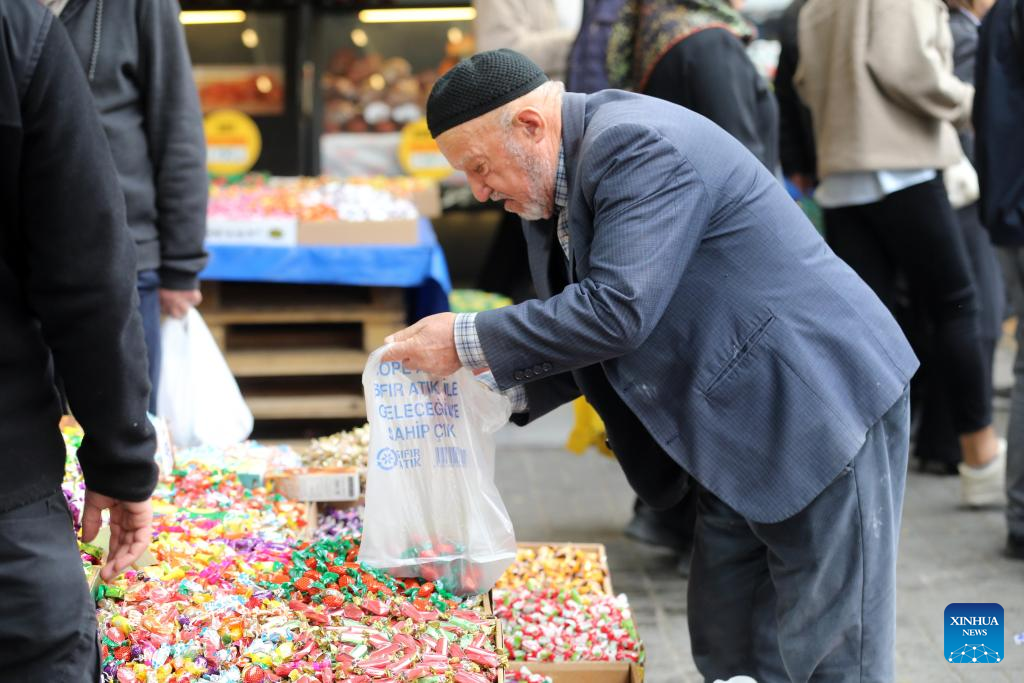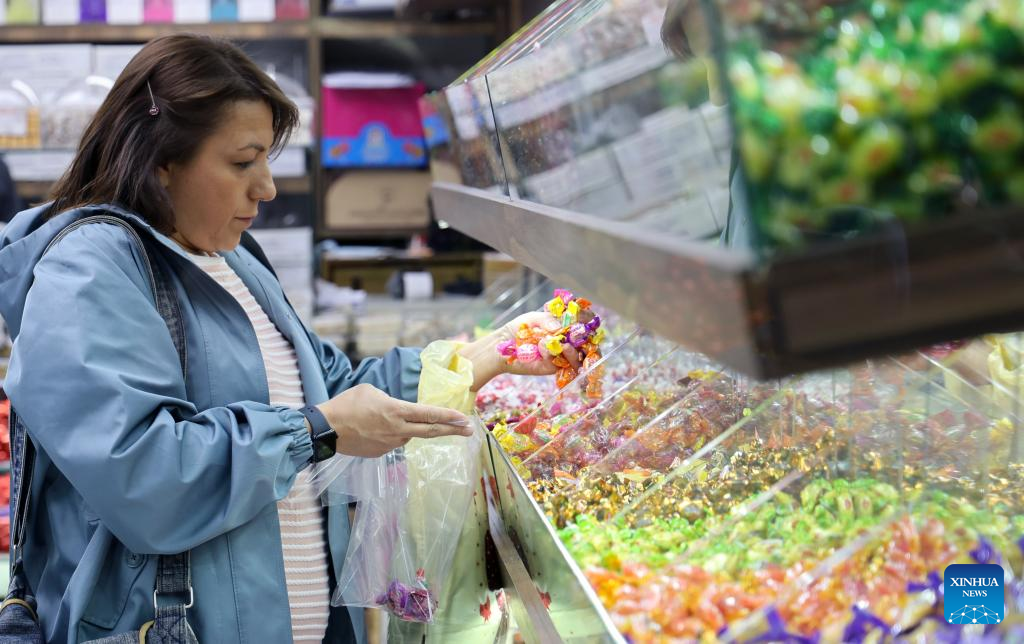
A man chooses candies at a market in preparation for Eid al-Fitr in Ankara, Türkiye, on March 26, 2025. (Mustafa Kaya/Handout via Xinhua)
by Burak Akinci
ANKARA, March 28 (Xinhua) -- As the Islamic holy month of Ramadan concluded, Turks across the nation welcomed Eid al-Fitr, a festival traditionally marked by joyous reunions and abundant celebrations. However, as the country grapples with persistent economic challenges, Turks are facing yet another Eid overshadowed by rising prices.
The nine-day holiday, which began on Saturday, comes as households continue to struggle with the effects of inflation. Despite financial pressures, many sought to preserve the cherished traditions of Eid, finding solace in family and community.
In Ankara's historic Ulus Bazaar, the usual crowds of holiday shoppers were somewhat diminished, yet the spirit of Eid remained palpable. Merchants displayed sweets, gifts, and new clothing, essential components of the celebration.
"The Eid festivities are synonymous with reuniting in joy with family members and loved ones," said Furkan Demir, a student shopping with his father. Like many, he expressed concern over the soaring cost of living, a sentiment echoed throughout the marketplace. "Because of the economic situation, people are frustrated," he noted, highlighting the financial strain on many citizens.
Traditionally, Eid begins with early-morning prayers in mosques, followed by family gatherings and visits to cemeteries to honor deceased loved ones. Children, dressed in new attire, visit neighbors and relatives, receiving sweets and pocket money.
Türkiye has been navigating a period of high inflation, which, while moderating from a peak of 75 percent in May 2024, remains a significant burden on household budgets.
"Living conditions today are much harder than in the past," said Ayse Surer, a shopper at the bazaar who bought sweets to share with family and friends. Despite financial constraints, she emphasized, "We will still celebrate the festival."
The spirit of charity, a cornerstone of Ramadan and Eid, has taken on heightened importance. Community support has become a lifeline for many, with charity organizations distributing food and clothing to those in need. The government and local municipalities have also stepped in, providing free meals and Eid bonuses to pensioners.
Many families made video calls to bridge long distances. "We couldn't buy as many gifts as we used to, but the most important thing is being together and teaching our children the values of kindness and gratitude," said Ayse Demir, a mother of two.
While Eid typically boosts retail and tourism, the economic downturn has dampened sales. Confectionery shops reported reduced customer spending, though demand for traditional treats like Turkish delight and baklava persisted.
Amid economic difficulties, the emphasis on unity and solidarity has strengthened. "The festivities are an opportunity for gathering, unity, and celebration," said Muhsin Vural, another visitor to the Ulus Bazaar. ■

A woman chooses candies at a market in preparation for Eid al-Fitr in Ankara, Türkiye, on March 26, 2025. (Mustafa Kaya/Handout via Xinhua)







